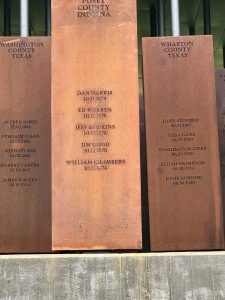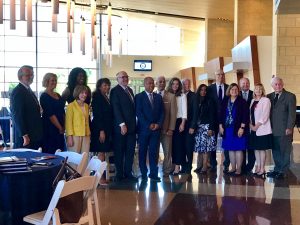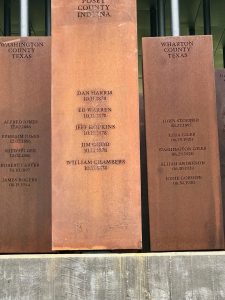Louisiana Governor Jeff Landry signed House Bill 71 into law Wednesday, 17 June 2024. Governor Landry stated, “If you want to respect the rule of law you gotta start from the original law giver which was Moses, … he got his commandments from God.” Louisiana HB 71 decrees that every public school in Louisiana and every non-public school that receives state funds shall display the Ten Commandments in every building and every classroom it uses.
HB 71 sets forth its version of the Ten Commandments that must be displayed as follows:
“The Ten Commandments
I AM the Lord thy God.
Thou shalt have no other gods before me.
Thou shalt not make to thyself any graven images.
Thou shall not take the Name of the Lord thy God in vain.
Remember the Sabbath day, to keep it holy.
Honor thy father and thy mother, that thy days may be long upon the land which the Lord thy God giveth thee.
Thou shalt not kill.
Thou shalt not commit adultery.
Thou shalt not steal.
Thou shalt not bear false witness against thy neighbor.
Thou shalt not covet thy neighbor’s house.
Thou shalt not covet thy neighbor’s wife, nor his manservant, nor his maidservant, nor his cattle, nor anything that is thy neighbor’s.”
Louisiana schools may expend public money to install the documents or may solicit or accept donations for those purposes. The Bill makes no attempt to discuss the contents of these provisions nor does the Louisiana Legislature explain why it posits the Ten Commandments played any role in forming the law of the United States.
However, the imminent philosopher of myth and law, Joseph Campbell, explained how our Founders looked to the Enlightenment for guidance, not to the Bible or any religion:
“Now let us ask: what about the symbolism of the Bible? Based on the Old Sumerian astronomical observations of five to six thousand years ago and an anthropology no longer credible, it is hardly fit today to turn anybody on.
In fact, the famous conflict of science and religion has actually nothing to do with religion, but is simply of two sciences: that of 4000 B.C. and that of A.D. 2000.
….
The Biblical image of the universe simply won’t do anymore; neither will the Biblical notion of a race of God, which all others are meant to serve (Isaiah 49:22-23; 61: 5-6, etc.) nor again, the idea of a code of laws delivered from on high and to be valid for all time
….
The problems of our world are not even touched by those stone-cut Ten Commandments that we carry about as luggage and which, in fact, were disregarded in the blessed text itself, one chapter after they were announced (Exodus 21:12-17, following 20:13).”
Campbell goes on to explain how our modern legal world is not and cannot be based on religion:
“The modern Western concept of a legal code is not of a list of unassailable divine edicts, but of a rationally contrived, evolving compilation of statutes, shaped by fallible beings in council, to realize rationally recognized social (and therefore temporal) aims.”
Joseph Campbell, Myths to Live By, 1972,
ISBN 0 14 019.461 4, at pp. 88-89.
Or as political commentator James Carville more succinctly and prosaically stated about the HB 71and similar legislation, “It is the dumbest waste of time I’ve ever seen in my life!”



 While you can anticipate the content of the displays at the EJI, when you walk through the hundreds of metal coffins inscribed with thousands of names of murdered Black people including several from Posey County, Indiana, you will naturally contemplate the evil we are capable of doing to one another just because someone may be an “other”. But when you hear directly from living persons who are still experiencing a denial of equal justice you are forced to confront your own previous lack of awareness.
While you can anticipate the content of the displays at the EJI, when you walk through the hundreds of metal coffins inscribed with thousands of names of murdered Black people including several from Posey County, Indiana, you will naturally contemplate the evil we are capable of doing to one another just because someone may be an “other”. But when you hear directly from living persons who are still experiencing a denial of equal justice you are forced to confront your own previous lack of awareness.